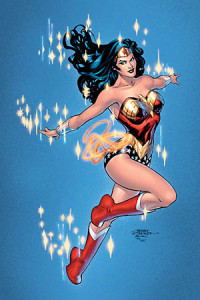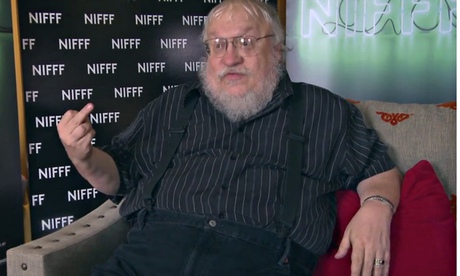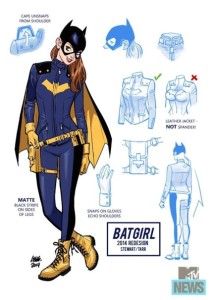People who know me know how closely I follow geek entertainment news. Mostly they know it from those meetings where everybody sits me down and tries to explain how my obsession with geek entertainment news has affected them, and then I yell “No, the showrunners of Agents of SHIELD need an intervention!” and then come the tears… We have fun.
Anyway, some geek news as of late has caused ripples of controversy. Allow me to explain a few of them, and why I think they’re kind of a big deal. Well, as much of a big deal as movies based on superheroes are capable of being.
Ant-man shenanigans
What’s the deal? For eight years, as long as there has been a Marvel Studios, filmmaker Edgar Wright was pitching a movie based on Ant-man, a character who couldn’t possibly have been at the top of anyone’s list to give his own movie.

Edgar Wright is behind such cult favourite movies as Shaun of the Dead, Hot Fuzz, Scott Pilgrim Vs. the World, and The World’s End. He is a filmmaker of singular vision. He may not have the box office clout of a David Fincher, but damn he’s got the talent. And for nearly a decade he’s been asking for the chance to use those talents on a movie about Ant-Man. Only to pull out of the project right before it was due to start filming.
It’s now generally known that the reason for this split was that Marvel, late in the game, requested script changes Edgar Wright didn’t want to make. Whatever Wright had planned, it was too big a break from the Marvel model, and they wanted to correct that. A move not everyone on Team Marvel agrees was a great move.

Since then, other writers (three and counting) have been brought in to rewrite the movie, because nothing says “Quality movie” like four different screenwriters.
Why does this matter? A lot of the buzz following the split looked at what this might mean for future Marvel films. Are they anti-auteur? Why is a company that built its reputation being different and taking risks now pushing for safety and sameness? Were they worried that Guardians of the Galaxy might be their first failure? (Announcing a release date for the sequel before it was released says no, and their box office to date says they never needed to be) Will they have trouble attracting actors if they’re going to make a habit of changing the entire project (at least the script and director) after everyone’s already signed on? The cast committed to Edgar Wright’s Ant-Man, after all, not the version they’re ultimately shooting.
But that’s not why it matters.
First of all, those are questions thought up by a media that loves a good downfall story. Marvel’s on a winning streak on the big screen. Nine movies in, and eight are unqualified hits (Incredible Hulk didn’t bomb, but they’ve certainly been reluctant to talk sequel). Their movies have flaws, yes, mostly their inability (or unwillingness) to write good villains… fine, except for Loki that one time… but they’re reliably fun to watch and typically make a decent profit, and as long as that second thing is true, losing Edgar Wright will not hurt them as a company. Actors like being in blockbusters, so as long as the movies are hits, Marvel won’t have problems finding casts. It probably won’t even hurt Ant-Man’s box office much. More people were going to watch it based on “From the studio that brought you Avengers: Age of Ultron” than “From the director of Shaun of the Dead.” That’s just a fact.
It matters because it’s sad.
It’s sad that Edgar Wright chased this project for so long only to have it mutate into something else, something he couldn’t be a part of. It’s sad that Edgar Wright will never get to make his Ant-Man movie, and it’s sad that we won’t be able to see it. Because while I don’t know what the new writers are changing, or how much if any of Wright’s original story will still be there, I have seen every movie Wright has directed, and each and every one of them is amazing. So I cannot believe that this new Ant-Man movie will be anywhere as good as Wright’s would have been.
Doesn’t mean it won’t still be worth watching. Most of Marvel’s product is. But it could have been more. And it’s sad that the world’s most consistently successful film studio is now publicly against doing things differently.
Lady Stoneheart
What’s the deal? Game of Thrones is huge these days, but the fandom is split into two factions: those who read the books, and know it better as “A Song of Ice and Fire,” and those (like myself) who are just watching the TV show. As such, discussion of Game of Thrones (the show) is carefully divided, so that fans of A Song of Ice and Fire (the books) can discuss things without spoiling it for those of us who haven’t been reading ahead.
A covenant that was broken in the wake of the fourth season finale.
Now I’ll do what most websites didn’t and refrain from spoiling anything. Suffice to say, many of the book-reading fans expected the fourth series to end with a jaw-drop moment from the end of book three (which is approximately where they’ve gotten), that jaw-drop moment being the arrival of a character referred to as Lady Stoneheart. When the Lady didn’t appear, the internet went crazy, wondering why she wasn’t there and if we should expect her next season, spoiling who she is for the TV crowd all the way. Even the article headlines and choice of photos made it hard not to know what they were talking about.
As it stands, the producers are not claiming Lady Stoneheart will be turning up next year. They could just be lying in an attempt to preserve the surprise… which would be odd, given how badly that blew up in JJ Abrams’ face with Star Trek: Into Darkness (of course he was Khan, he was always going to be Khan, telling us he wasn’t was wasting everyone’s time). Maybe they’re hoping a few people remain unspoiled that they can shock in the fifth season premiere. Or maybe they’re authentically leaving her out. Which… seems problematic.
Why does this matter? Because this would mean one of two things, and they’re both bad signs.
Option one: they’re just skipping her. By and large, Game of Thrones has stayed pretty close to the source material. But they have left the odd thing out, and everyone from die-hard book fans to author George R.R. Martin has clucked their tongues at the showrunners over it. Some of what they’ve left out seems inconsequential (does it really matter whether someone’s death was called a suicide rather than framing some musician we haven’t seen since book one?), some of it less so (Rhaegar Targaryen might have been long dead when the series started, but he may have a larger impact than the show has suggested), but I’m not sure dropping an entire storyline is a good idea.
Especially since they might need to add stuff to fill the gap, and they do not have a strong track record. Season four, they invented a story involving the Night’s Watch mutineers in order to boost Bran Stark’s screen time, and all it brought to the series was a) yet more rape, right after they were (rightfully) accused of having too much rape as it was, and b) a near-miss where Bran and Jon Snow almost find each other but don’t, which we already did in the third season finale, and also almost finding family but then not has basically been Arya’s entire story for two seasons. The Caster’s Keep arc was pretty much pointless, so I’d kind of prefer they stick to the books rather than keep trying to add things.
Option two: they’re leaving out Lady Stoneheart because she’s ultimately not that big a deal. They’ve read book five, had some conversations with George R.R. Martin, and know that the Lady Stoneheart plot is short-lived and doesn’t impact anything, so they’re giving it a miss. In which case fuck you George R.R. Martin.

I get wanting to subvert expectations. I get wanting to be unpredictable. But three times now, George Martin has taken a character I like, given them a plotline I want to see play out, and then ended it with a swift death for the guy I’m rooting for and a victory dance for Cersei goddamn Lannister. It’s getting old, and if it turns out Lady Stoneheart also ends in betrayal and swift, pointless death, then I will hold this over the head of every single person who tells me to read the books, because at that point I no longer consider the books worth reading. Because you can’t be “unpredictable” by doing the exact same thing over and over.
New look for Batgirl!
What’s the deal? Recently, DC announced a new look and a new direction for Batgirl, one which is seemingly directed towards teen girls. There was the usual wailing that comes whenever Gail Simone stops writing Barbara Gordon, but most of the reaction has been positive. Fan art of the new costume is already spreading.

In addition to the new look, Batgirl will be more immersed in youth culture. The most valid critique I’ve heard of this is that the new look and approach would have been better suited to Stephanie Brown, who briefly held the mantle of Batgirl prior to the New 52 reboot, than Barbara Gordon, who’s been through a bit too much to pull off the carefree youth angle. But you know what? Fair as that may be, I’m not certain I care.
Why does this matter? Because a Batgirl aimed at younger women is a bloody brilliant idea, that’s why.
I’ve accepted the fact that enough things are targeted at us 30-something (and up) white dudes as it is, and maybe other demographics could have a turn. Women like comics, women would like to be able to enjoy comics, so writing a comic with women, even girls, in mind is a good plan.
And yes, absolutely make it a major character like Batgirl.
Besides, I remember the last time DC tried this. Pre-New 52 they made Supergirl a book for younger female readers. They made her more relatable to teen girls, made her… proportions less exaggerated, her costume less form-fitting and her skirt a few inches longer (with the editorial mandate of “I never want to see Supergirl’s underwear again”), and not only did this not ruin the book, that was as good as Supergirl’s comic has been since Peter David stopped writing it over a decade ago. I still read Supergirl, but I miss her teen-girl-friendly days.
As incoming writer Cameron Stewart said, “One young girl being inspired by Batgirl is worth 20 dudes complaining that the costume looks ‘hipster.'” And that’s a sentiment I can get behind.
Just need to catch up on my comics so I can actually start reading it when it comes out…
Black Captian America and Girl Thor
What’s the deal? Meanwhile, over at Marvel, upcoming storylines will see Captain America lose his super-soldier-ness, and Thor no longer be worthy of Mjolnir, meaning they’ll both need replacements. Steve Rogers will pass his title and shield to Sam Wilson, aka the Falcon, recently seen in the Winter Soldier movie, while Thor will be replaced by a female Thor.
Which, well, is kind of weird. Marvel’s been shouting “No, she’ll BE Thor!” rather than a different character wielding the power of Thor but keeping their own name, like Beta Ray Bill, Thunderstrike, or anyone else who’s done that ever. This woman (not sure what her name was earlier) will be Thor in the same way Donald Blake was Thor way back when, a story mechanic that was dropped decades ago and retconned out of existence a few years back. So that’s… that’s weird, is what it is, but that’s not what really strikes me as uncomfortable about all the press Marvel has been seeking out around these stories.
Why does this matter? Because diversity in comics is important, and I’m not sure they’re doing it right.
I’m not saying making Thor a woman or Captain America a minority is the wrong move. Making Batman black or Doctor Who a woman or what have you will have far more impact than introducing a new minority superhero whose comic gets cancelled a year or two later then drifts into obscurity. But… well…
Every single thing I know about Marvel comics says one thing: this will not last. In recent years, Marvel had Bucky take over the title of Captain America, used a mind-swap to turn Dr. Octopus into the Superior Spider-man, killed major characters off… but almost none of it took. Most deaths lasted less than two years, in one case less than two months. Steve Rogers was back from the dead right around the time his first movie opened, and Peter Parker was Spider-man again right in time for Amazing Spider-man 2 to hit theatres.
Avengers: Age of Ultron is out next May, and if Steve Rogers and male Thor haven’t reclaimed their titles by then, it’ll be a small miracle given Marvel’s track record. And if Sam Wilson hasn’t stepped down by then, he will when Captain America 3 opens the year after.
And the thing is, Marvel is the only company to actually pull something like this off long-term. In their Ultimate line, Peter Parker’s been dead for years now, and half-black, half-Hispanic teenager Miles Morales has been in his place, and that book is thriving (Ultimate Spider-man has long been the best, and often only good book in that line). But it seems powerfully unlikely that that’s what’s happening here. This looks to be two short term stories that Marvel’s crowing about like they just re-wrote the rulebook or something.
And that’s ultimately the issue I have. A black guy taking over the role of Captain America for eight months would be a non-issue if they weren’t shouting from the rooftops about what a bold move it’s going to be. Crowing about how progressive they are for character changes that almost certainly won’t last just feels… tacky.


